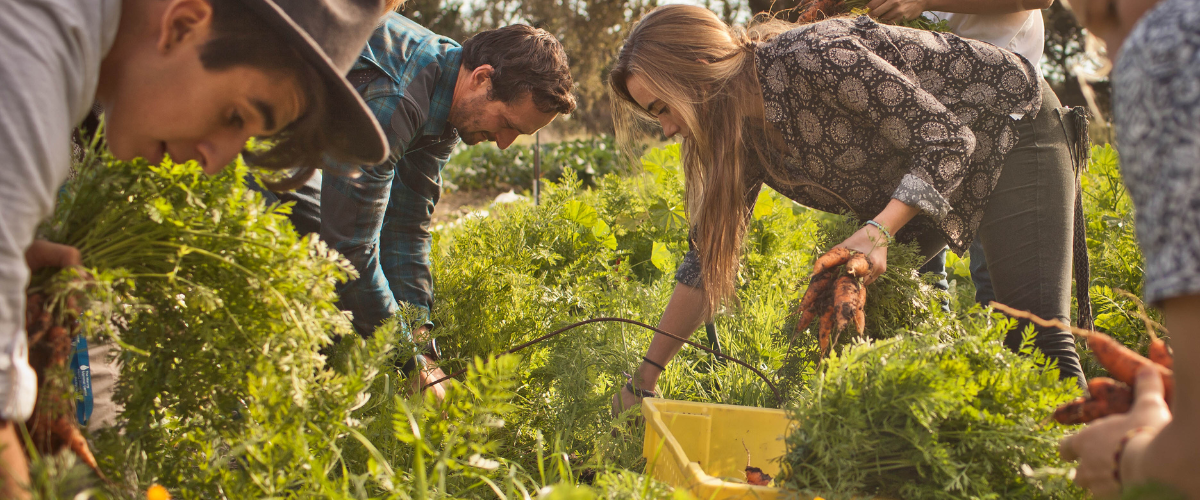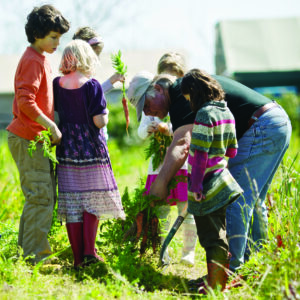More green time, less screen time improves mental health
A new collection of 186 studies shows that high levels of time spent in nature are associated with positive mental health, cognitive functioning, and academic achievement benefits for children and adolescents.
Conversely, high levels of screen time are associated with depression, anxiety, stress, and poor self-regulation.
That’s why Waldorf Schools emphasize outdoor learning and play as important aspects of the school day for each student in every grade.
At Summerfield Waldorf School, our teachers are actively guiding the students to build inner imaginations based on true stories and real world images and experiences, as opposed to digital or virtual realities.
Students take these real world images and experiences into their sleep and come back the next day ready to build the concepts of their education from these pictures, which they have transformed and made their own. Images consumed on a screen can take away from or damage these organic imaginings.
As a school, Summerfield places an emphasis on direct human interaction and authentic experience. Studies show that a direct experience, as opposed to a virtual one, has a measurable positive impact on brain development throughout childhood and adolescence.
One way that we prioritize green time, over screen time, for our students is our Biodynamic® Farm.
Summerfield’s farm produces a seasonal bounty of fruits, vegetables and flowers, and is a core part of the curriculum for classes from preschool through twelfth grade. We are the only school in the state that integrates a working Biodynamic farm into our curriculum. The Farm is a foundational part of our campus and our ethic.
At the farm, Summerfield students have the opportunity to learn basic skills that are rapidly becoming lost in today’s society. By tending gardens, harvesting vegetables, and caring for animals, each child gains a deep awareness of the natural world.
- Early Childhood Green Time
- Lower School Green Time
- High School Green Time
Modern science is validating what Waldorf teachers have known for a long time: the consumption of media by infants, children and young people inhibits their healthy development.
Waldorf Education explains, “the Waldorf perspective is that computer exposure should not be based on capability but on developmental appropriateness. While many applaud adult-like thinking in young children, we observe that a child’s natural, instinctive, creative and curious way of relating to the world may be repressed when technology is introduced into learning environments at an early age.”
Summerfield teachers understand that technology must assume a role in education, but at the appropriate developmental stage, when a young person has reached the intellectual maturity to reason and process on their own. And still, when teachers introduce screens, they are not the primary method of learning.
At Summerfield, computers and digital technology are not part of the early grades curriculum, although mechanical technology and the practical arts are incorporated at all levels. In high school, computers and digital aids are one of many teaching and learning tools used in the classroom.
Learn more about Summerfield’s Media Policy here.
Summerfield discourages technology and screens until high school to preserve the open landscape for learning. This is done through imagination, creativity, and exploration, developing inner resources and a foundation not dependent on technology.
At the appropriate time, Summerfield’s curriculum teaches students to be responsible digital citizens; and special subjects like knitting and playing and composing music prepare students for coding and other useful technological skills.
“Screen time and green time are linked to psychological well-being in contrasting ways.”
Green Time vs. Screen Time
The Children Nature Network compiled data from 186 studies. They state, “generally, high levels of screen time were associated with unfavorable psychological outcomes, while green time tended to be associated with favorable psychological outcomes.”
Unfavorable psychological outcomes from screen time include
- Depression
- Anxiety
- Stress
- Psychological distress
- Poor self-regulation
- Emotional challenges
- Negative affect or mood
Favorable psychological outcomes from green time include
- Happiness
- Resilience
- Hope
- Prosocial behaviors
- Positive affect
- Self-esteem
- Cognitive functioning
- Academic achievement
For these reasons and more, Summerfield Waldorf School emphasizes outdoor learning and play as important aspects of the school day for each student in every grade. We encourage limiting media use and screen time to high school students. And even then it is only one component of the deep education that Summerfield provides.




